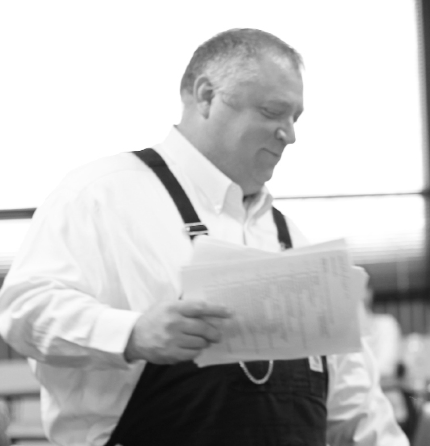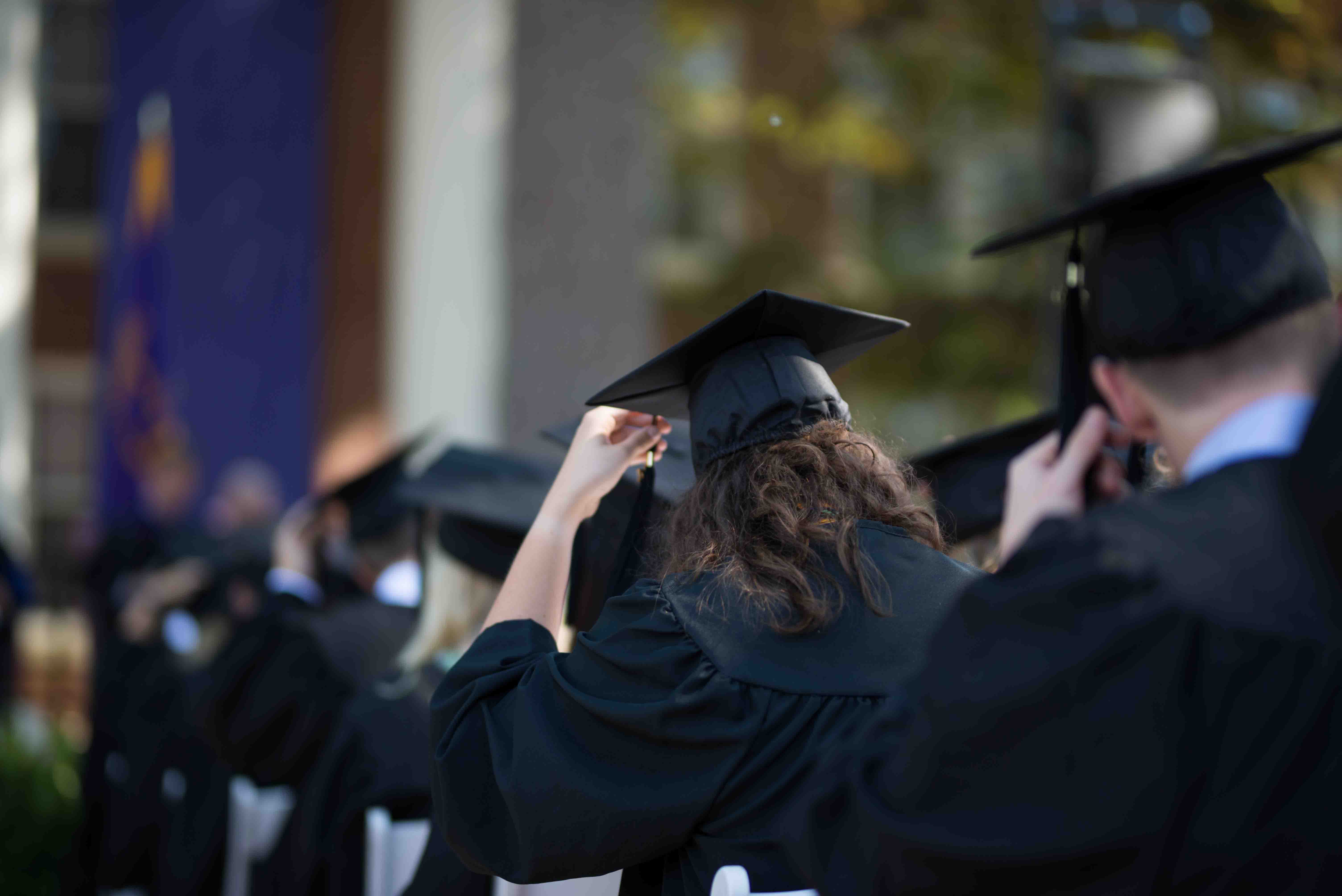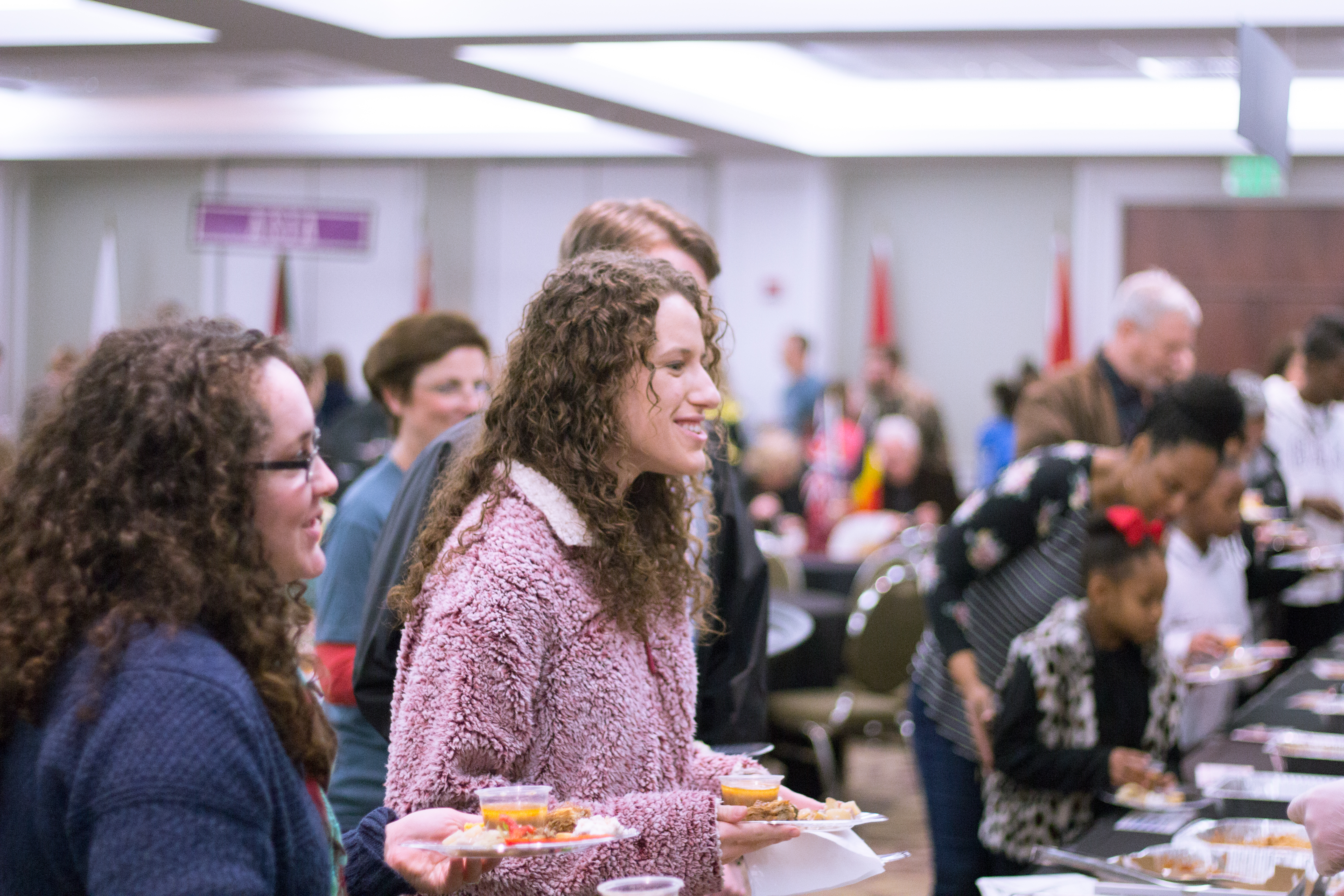Changing of the guard
Wight becomes W. H. Sutton School of Social Sciences dean
By JORDAN CAMPBELL
Signal Writer
He leaned back in his chair, brought one foot up to rest on his knee and lightly sighed when asked about the subject. Dr. Randall Wight, chair of the psychology department and dean-elect of the W. H. Sutton School of Social Sciences, has an office which reflects his many passions.
Two of the four walls are lined from floor to ceiling with books bearing titles such as “The Mind,” “A Blank Slate” and the entire encyclopedia set of “Significant Contributions to the History of Psychology.” Another wall is devoted to art, ranging from oil paintings of famous battles to a final sketch of faces, all ornately framed. Above his door is a clock that says “who cares” in the middle with the numbers ‘falling’ to the bottom of the clock (which is coincidentally stuck on the time 9:30). In front of his window sits the Lavell Cole Most Inspirational Teacher Award, an award that is voted on by students every year. And as of last count, Wight has 11 skulls, one of them human, and two brains, one a real human brain floating in a jar, a brain slice and “bits and pieces” of brains scattered throughout his bookshelves.
At first glance, Wight is a regular professor who wears overalls and has a slight southern drawl. However, after hearing his quiet, calm voice, seeing his eyes light up at the mention of anything related to art or psychology and listening to him tell personal stories about his childhood, traveling adventures and classroom experiences, it is obvious that this man is anything but ordinary.
Wight is a graduate of Arkansas Tech University and Memphis State University and his graduate specialties include behavioral neuroscience, visual cortex, perceptual process and philosophy of mind. In his words, Wight is a trained neuroscientist who is curi- ous about “everything.” On July 1, Dr. Wight will be become the dean of the W.H. Sutton School of Social Sciences.
Five minutes into the interview, Wight was quoting Aristotle. His love of philosophy and psychology is evident, and he said his interest in the fields began in the third grade.
“I was a class nuisance and was eventually banished to the library for the rest of the year,” Wight said. “I was a reader, so that was fine with me. I began reading the psychol- ogy section, and I realized that I like this stuff. From that moment, from a third-grader’s frame, I wondered what it meant to be human.”
One of the methods Wight uses to teach students is to give examples and tell stories. At one point he compared and contrasted language use in parrots and cats: Parrots tend to vocalize within their species as well as with humans; domestic cats tend not to vocalize within their species but will with humans. He observed that we have more in common linguistically with parrots but find it easier to communicate with cats.
“That may seem trivial, but it makes me scratch my head and ask ‘why,’” he said. “What is it about the interactions among and within these species and within and among individuals that leads to their varying experiences of the world. I’ve been asking varia- tions on these questions about humans, in particular, and animals, in general, since the third grade.”
Wight also chaired the committee that formed the CORE program, and he was the first dean of the School of Interdisciplinary Studies. He said he believes that experience has helped him prepare to become dean of the School of Social Sciences.
“Perhaps because of my interests in art, philosophy and literature and my training in science, I’m always looking for multiple facets on any given issue,” Wight said. “In order to ponder empirically the question ‘why do humans do what they do’ you need to chase rabbits into a variety of disciplinary burrows, beginning with the disciplines in the social sciences.”
Wight served as dean of the School of Interdisciplinary Studies from 1998 to 2003 and has served as the coordinator of the university’s self-study process for reaccredidation by the Higher Learning Commission of the North Central Association of Colleges and Schools for the past three years. After reflecting on his Ouachita career thus far, he was quick to note that this will be an entirely different experience for him.
“Starting from scratch for the liberal arts program was an internal kind of thing, we were pulling things together,” Wight said. “At the Sutton School, we are still working on ourselves to do our jobs better. I’ll be working with my colleagues to try and help them with their work. There is an external component to it as well. So that will be different, something that I have not done before, and it will be a challenge I am looking forward to.”
The mention of a challenge sparked his memory to a specific quest he conquered while traveling in Europe to see one of his favorite sculptures. After a short discussion of his avorite pieces of art and a few slideshows later, Wight turned his chair around and faced the window, gazing outside as if he were back in Florence, Italy, running around town trying to find the Bernini painting he so desperately wanted to see.
“I love working with people to meet challenges, and I love looking behind the mun- dane to see the marvelous,” Wight said. “When I experience art, I’m thinking about per- ceptual processing and conscious experience. We should be amazed at things people take for granted every day. Consider just seeing a cup or tasting coffee or feeling clothes on our back — from the standpoint of perception, all of these events are amazing. They arise and fall within consciousness within a moment and can be concomitantly experi- enced yet never fully shared. No one sees the world quite the same way. Questions of human experience fascinate me. Fully exploring those questions leads one into not only art and science but also politics, sociology, history and human behavior and experience. It’s just fun.”
Dr. Hal Bass, founding dean of the School of Social Sciences in 2002 and current dean, shared his excitement for Wight and for returning to the classroom.
“Dr. Wight is an outstanding teacher and a very capable scholar,” Bass said. “He un- derstands and appreciates the contributions social sciences has to make to the academic program. [Wight] is very loyal and committed to Ouachita. He has a good, strong liberal arts background that will enable him to continue our connections to a broader liberal arts university.”
Bass plans to return to full-time teaching. His course load will include a number of courses, such as Contemporary World, American Congress and Sociology of Politics.
“The Sutton School has grown since 2002 by the size of faculty and enrollment,” Bass said. “We have grown, in resources with the donations of W.H. Sutton, and the amount of attention we have been able to offer our students, whose numbers have increased.”
One of the new ideas Wight is bringing to the table as dean is to establish an advisory board and to expand the name and purpose of the Sutton School.
“I want to build on Dr. Bass’s good work to continue to raise awareness of the Sut- ton School so that the name immediately elicits a sense of scholars, both faculty and students, investigating factors influencing human experience, behavior, interaction and government while advancing understanding with academic and Christian excellence,” Wight said. “Advancing the Sutton School requires continuing to work together in pur- suit of noble goals.”
Wight has received overwhelming support from the student body even though his new position will decrease the hours he spends in the classroom.
“I’ve always been someone who wants pore over books and then walk into a class- room and share,” Wight said. “These new challenges will require reaching beyond my own comfort zones and sharing the joy of learning, teaching and discovering with a wider audience all the while working to enhance growth, work and engagement oppor- tunities for our students, for our colleagues and for the larger Ouachita community. I’m looking forward to that challenge. If I have a reservation it is that I’m not going to be in the classroom as much. I love teaching. When I think about who I am, then I’m a teacher. I guess now my classroom has become larger.”
After a few more conversations about his travels, studying abroad and why he loves psychology, Wight leaned forward and lowered his voice, as if telling a secret.
“Though the questions about what makes us human keep me up at night, I get up in the morning because I love our students,” Wight said. “I have friends doing a variety of things around the world, but I think I have the best place to work on the planet. I love Ouachita. It offers a great life. It’s a great place, and it’s full of great people. Continuing adventures lay ahead, both in class and beyond.”







